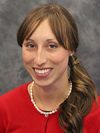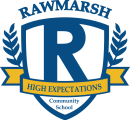Curriculum
Spanish

Mrs Dodds
Faculty Leader – Languages
Subject Staff
Mr Elsom
Miss Wiggett
Ms Cadman
The Subject Way
Our subject has a ‘Subject Way’ at the heart of it. Our Subject Way is designed to help students become young subject specialists. The Subject Way has two main purposes:
Firstly, to teach students the vital skills they need to achieve their full potential and gain the very best grades they can. Secondly, to teach students how each subject relates to the wider world, incorporating the life skills they will learn.
It is our belief that knowing how what you learn links to the wider world brings a subject to life and therefore improves overall understanding and engagement.
Curriculum Intent
“If you talk to a man in a language he understands, that goes to his head. If you talk to him in his own language, that goes to his heart.” – Nelson Mandela
The MFL curriculum is designed to empower students to draw maximum cultural, personal and economic benefit from the role of global citizenship. Through the promotion of oracy and the expansion of vocabulary and literacy we seek to enable students to communicate confidently and without barriers in a wide range of social settings and media.
In order to do this the MFL curriculum is sequenced to allow knowledge and skills to develop simultaneously and progressively. By revisiting and enhancing key language skills in different settings students develop their ability to recall, analyse and evaluate usage and at the same time build independence and resilience.
Our Curriculum enhances our students’ cultural literacy and experience by deepening exposure to non-Anglophone ideas, texts and customs in a variety of topics, settings and locations.
How we intend to remove barriers
“The limits of my language mean the limits of my world.” – Ludwig Wittgenstein
Our curriculum is designed to remove barriers through the promotion of literacy and oracy. We reinforce listening and reading skills through the embedding of skills and techniques such as the Prise method for reading comprehension. Through this students not only learn how to decipher key points and facts in texts from all backgrounds, but eventually how to interpret feelings, emotions and points of view. In addition, students learn how to express themselves and their opinions effectively and appropriately in a range of social contexts, empowering their social mobility.
How we develop skills for learning
We develop learning skills, teaching techniques for the acquisition of vocabulary and the application of grammar. Students learn skills for memorisation, recall and fluency through our layered approach to revisiting topics. Vocabulary is acquired and enhanced through exposure to a range of texts, oral and written in a variety of divergent topics, settings and genre. Students analyse texts to discern emotion and feeling as well as evaluating their own learning skills, such as revision and rote learning techniques.
How we foster personal attributes
We encourage the development of personal attributes such as effective listening and self-expression. Through the learning of other languages, students develop personal and cultural empathy. In doing so they become socially confident and economically mobile.
How we intend to enrich student experiences and broaden the horizons of students
Our department has a key role to play in broadening student horizons by exposing them to the lifestyles, literature and culture of speakers of French, German and Spanish, not just in Europe, but across the globe. We reflect the multi-ethnic and multi-cultural diversity of world languages. We enrich student experience through the exploration of foreign media both in the classroom and as part of our enrichment activities. We organise cinema and restaurant visits, visits from external speakers and links with university departments. Wherever possible we encourage visits abroad, for example to Amiens for the Christmas Market, the Opal Coast, the Rhineland and Berlin.
Our Curriculum
Our KS3 curriculum aims to empower our learners with the linguistic tools, high frequency structures and vocabulary that are useful for real life communication that naturally feed into their next stage of learning.
For each year group in KS3 the culturally rich SoW has progressive end points. The key knowledge below is sequentially taught through the vehicle of the following topics across KS3.
| Y7 | Y8 | Y9 |
Verbs | To have & to be & to live – minimum 1st & 3rd person present tense
| Regular verbs present tense Common irregulars – to go & to do Simple future tense
To wear – to play – to go – to do – to listen – to stay
| Past, present & future tense – regular verbs & common irregulars – minimum 1st & 3rd person singular (& plural)
To wear – to play – to go – to do – to listen – to stay – to ride – to watch To be able
|
Connectives | And, but, also, because, however | Although, therefore | Without doubt, instead of, in contrast |
Intensifiers | A bit, very, quite, too. | ||
Justified opinion | Simple opinion – I like, I love, I don’t like, I hate + reason
| Complex opinion & future tense + reason I cannot stand, I prefer, I think that ,it makes me want to +verb, it makes me + adj, it will be.
Clothes, Music, Holiday plans, Petit Nicholas | Complex opinion – past & future tenses + reason As far as I know If I were able to give my opinion If I had the choice
|
Adjectival agreement | Hair & eyes.Describing self & others. Family opinions. Pets & colours. | Talking about clothes (gender & number) |
|
Negation | I do not have / he she does not have / I do not like
| Never | It will not be at all… It was not at all … |
Comparatives |
| More than less than |
|
Time phrases |
| Normally, on Monday, usually, at the weekend, from time to time, everyday, often, sometimes, in general, when + weather Next summer, next year | I usually Next weekend, next Saturday, next Sunday, tomorrow, Last year, last weekend, last Friday, last Sunday, in the holidays, two years ago |
The content of each unit of work contains one or more constructions which have been selected with real life communication in mind whilst carefully assuring the National Curriculum is sufficiently addressed, if not exceeded through our robust enrichment programme.
1. Greetings, age and birthday
| 2. Describing physical appearance – Hair and eyes | 3. Family and their ages | 4. Spontaneous speaking and writing review (inc. Christmas – famous figures) | 5. Saying who you get on with in your family and why.
(inc. Careers in MFL)
| 6. Pets and colours
| 7. Using opinions to say what food you like and don’t like.
| 8. The Hispanic World | 9. Spontaneous speaking and writing review |
1. Film study – Coco – review of Y7 language on personal descriptions and family inc. Day of the Dead cultural exposé | 2. Arranging a trip to a restaurant | 3. Saying what clothes you wear and why inc’ clothes shopping in a Spanish store
| 4. What I and others do in our free time (inc. weather) Careers in MFL
| 5. Spontaneous speaking and writing review | 6. Music opinions with a focus on learning about music from the Spanish speaking world | 7. My holiday plans
| 8. Spontaneous speaking and writing review
|
1.Saying what you can do & what you did in Barcelona | 2. Saying what I did and am going to do at the weekend | 3. Describing film preferences and a recent trip to the cinema
| 4.Spontaneous speaking and writing review
| 5. Film review -Zipe y Zape
| 6. Describing a typical day at school
| 7. Future ambitions |
8. Spontaneous speaking and writing review. | 1. Opinions and Hispanic festivals and typical celebrations | 10 Describe a festival that you have been to and are planning to go to. | 11. Describing a past holiday | 12. What makes a good friend? | 13. Literature – Voces inocentes |
For KS4, students will have the option to continue with one or perhaps both of the languages that they studied in KS3.
Students will take the Pearson Edexcel exam which allows them to develop their ability to communicate with native speakers in both speech and writing. They will study across a variety of contexts relevant to their age and interests and will also develop a greater awareness of the culture of target language-speaking communities and countries.
The aims and objectives of the course are to enable students to:
- develop their ability to communicate confidently and coherently with native speakers in speech and writing, conveying what they want to say with increasing accuracy
- express and develop thoughts and ideas spontaneously and fluently
- listen to and understand clearly articulated, standard speech at near normal speed
- deepen their knowledge about how language works and enrich their vocabulary in order for them to increase their independent use and understanding of extended language in a wide range of contexts
- acquire new knowledge, skills and ways of thinking through the ability to understand and respond to a rich range of authentic spoken and written material, adapted and abridged, as appropriate, including literary texts
- develop awareness and understanding of the culture and identity of the countries and communities where the language is spoken
- be encouraged to make appropriate links to other areas of the curriculum to enable bilingual and deeper learning, where the language may become a medium for constructing and applying knowledge
- develop language-learning skills both for immediate use and to prepare them for further language study and use in school, higher education or employment
- All students have been provided with a revision guide and an accompanying document stating what to revise on a weekly basis. This document also highlights exam style questions that can be handed in for marking.
- Students are set weekly vocabulary learning by their teacher
- All students have a Language Nut account where tasks will be regularly set but students can also access their own independent revision and exam skill work on this platform.
- You should be learning your speaking questions on a regular basis.
Department Staff
C Borges
Director
- c.borges@thrybergh.com
D Miller
A Elsom
S Calme
A Qaddar
Y Bromley
Curriculum Newsletters
Find out more
If you would like more information about our curriculum, please contact the school using the details on our contact page.
Our Subjects at KS4
CORE SUBJECTS
EBACC SUBJECTS
OPTION SUBJECTS



